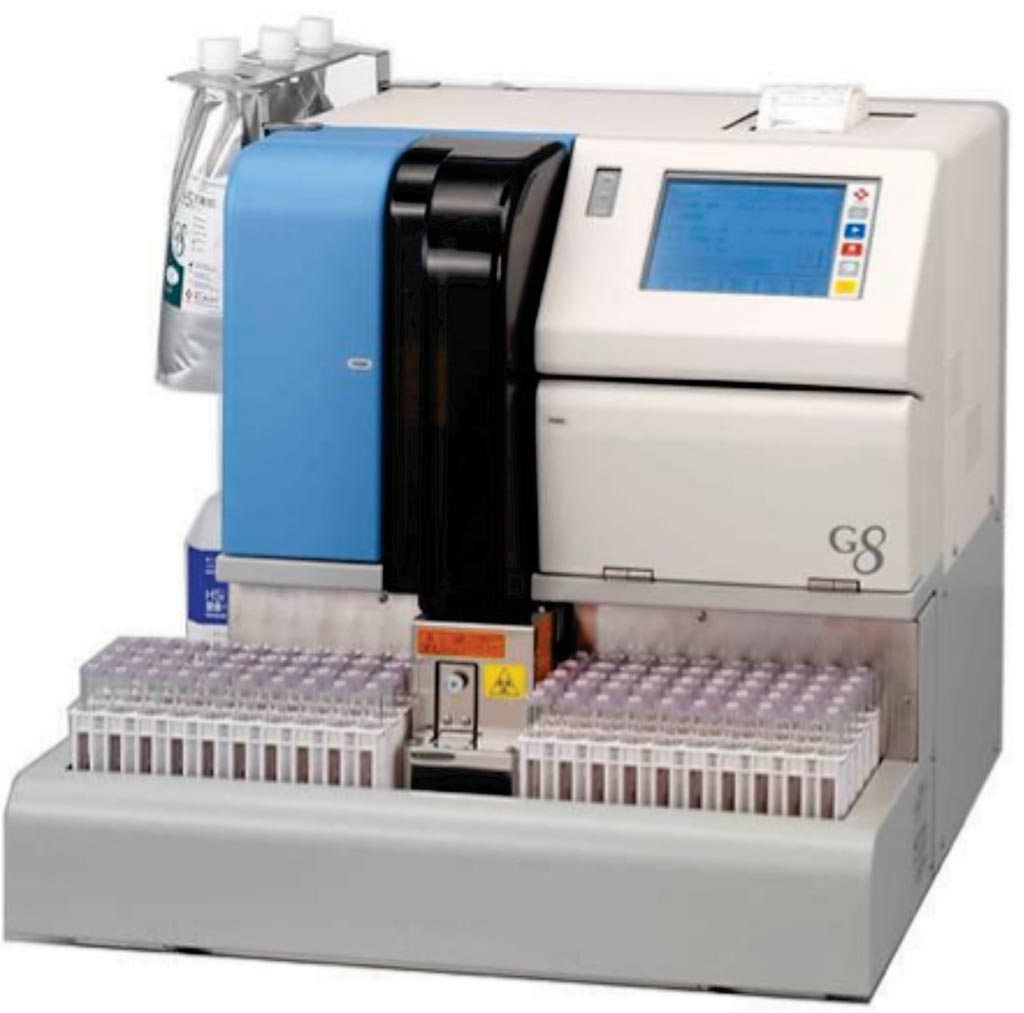Blood Test Identifies Gestational Diabetes Risk in First Trimester
By LabMedica International staff writers
Posted on 29 Aug 2018
A blood test conducted as early as the 10th week of pregnancy may help identify women at risk for gestational diabetes, a pregnancy-related condition that poses potentially serious health risks for mothers and infants.Posted on 29 Aug 2018
Gestational diabetes occurs only in pregnancy and results when the level of blood sugar, or glucose, rises too high. Gestational diabetes increases the mother's chances for high blood pressure disorders of pregnancy and the need for cesarean delivery, and the risk for cardiovascular disease and type 2 diabetes later in life.

Image: The automated glycohemoglobin analyzer HLC-723G8 (G8) is used for diabetes monitoring and diagnosis (Photo courtesy of Tosoh Bioscience).
Scientists at the National Institute of Child Health and Human Development (NICHD, Bethesda, MD, USA) analyzed records from the NICHD Fetal Growth Study, a large observational study that recruited more than 2,000 low-risk pregnant women from 12 clinical sites in the USA between 2009 and 2013. The team compared HbA1c test results from 107 women who later developed gestational diabetes to test results from 214 women who did not develop the condition. Most of the women had tests at four intervals during pregnancy: early (weeks 8-13), middle (weeks 16-22 and 24-29) and late (weeks 34-37).
HbA1c was measured in an EDTA whole blood sample that was stored at <−70 °C and thawed immediately before analysis. HbA1c was measured using a non-porous ion Exchange High Performance Liquid Chromatography (HPLC) assay using the Tosoh Automated Analyzer HLC-723G8 (Tosoh Bioscience, Inc, South San Francisco, CA, USA). The assay coefficient of variation (CV) was less than 1.16%.
The investigators found that women who went on to develop gestational diabetes had higher HbA1c levels (an average of 5.3%), compared to those without gestational diabetes (an average HbA1c level of 5.1%). Each 0.1% increase in HbA1c above 5.1% in early pregnancy was associated with a 22% higher risk for gestational diabetes. In middle pregnancy, HbA1c levels declined for both groups. However, HbA1c levels increased in the final third of pregnancy, which is consistent with the decrease in sensitivity to insulin that often occurs during this time period.
Cuilin Zhang, PhD, an adjunct professor and the senior author of the study said, “Our results suggest that the HbA1C test potentially could help identify women at risk for gestational diabetes early in pregnancy, when lifestyle changes may be more effective in reducing their risk.” The study was published on August 16, 2018, in the journal Scientific Reports.
Related Links:
National Institute of Child Health and Human Development













